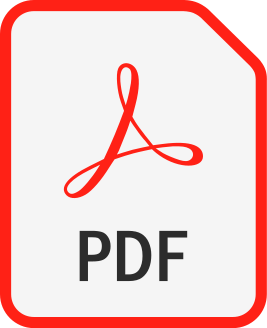At Wouldham, we provide a high-quality mathematics education that equips all our children with the essential skills, knowledge, and understanding to become confident, competent, and resilient mathematicians. As children progress through our school they establish firm foundations of maths through carefully planned opportunities that are active, creative and challenge all. Children are immersed in rich learning environments that enable them to leave our school as confident mathematicians, applying their knowledge to real life experiences. We want our children to make rich connections across mathematical ideas to develop fluency, mathematical reasoning and competence in solving increasingly sophisticated problems.
Our school follows a mastery approach to teaching mathematics where the whole class moves through topics at broadly the same pace. We spend longer on key mathematical topics and concepts to give all learners both the practice and depth of understanding that they need. We believe that all children can access and understand the full mathematics curriculum. Mastering mathematics means learners of all ages acquiring a deep, long-term, secure and adaptable understanding of the subject. We want all of our children to have the ability to reason mathematically, have an appreciation of the beauty and power of mathematics, and a sense of enjoyment and curiosity about the subject.
In the children’s first year at Wouldham, we follow the ‘EYFS Development Matters 2022’ framework and use the Early Years Number Sense Maths programme, which teaches a deep understanding of quantity and of numbers to 10, alongside NCETM and Numberblocks resource materials. The children have a daily, whole class maths lesson and use child-initiated time (Time to Explore) to embed key concepts in the six main areas that underpin early mathematical learning, which provide the firm foundations for the maths that children will encounter as they move up through the school: Cardinality and Counting; Comparison; Composition; Pattern; Shape and Space; and Measures.
At Wouldham, we use Power Maths in Key Stage 1 and 2 as a basis of our maths lessons. This is a mastery approach, that works for every child. It has been recommended by the Department of Education, to ensure that the aims of the National Curriculum are met. At the heart of Power Maths is the belief that all children can achieve. It rejects the idea that people simply ‘can’t do’ maths.
Within the Power Maths scheme each lesson has a progression, with a central flow that draws the main learning into focus. There are different elements, informed by research into best practice in maths teaching, that bring the lessons to life:
The Power Maths teaching model:
- The curriculum is broken down into core concepts, taught in units e.g. addition and subtraction, multiplication and division, shape, statistics etc.
- Each unit is then divided into small learning steps – lessons
- Each lesson is sequenced in the same format:
Power Up – Discover – Share – Think Together – Practice – Reflect
Power Up – We begin each maths lesson with a ‘Power Up’ activity designed to support fluency in all key number facts (this is sometimes substituted with a Tough Ten activity). Power Ups reinforce the two key things that are essential for success: times tables and number bonds.
Discover – each lesson begins with a problem to solve, often a real-life example, sometimes a puzzle or a game. These are engaging and fun and designed to get all children thinking.
Share – the class shares their ideas and compares different ways to solve the problem, explaining their reasoning with hands-on resources and drawings to make their ideas clear. Children are able to develop their understanding of the concept with input from the teacher.
Think together – the next part of the lesson is a journey through the concept, digging deeper and deeper so that each child builds on secure foundations while being challenged to apply their understanding in different ways and with increasing independence.
Practice – now children practice individually or in small groups, rehearsing and developing their skills to build fluency, understanding of the concept and confidence.
Reflect – finally, children are prompted to reflect on and record their learning from each session and show how they have grasped the concept explored in the lesson.
Children are encouraged to use concrete manipulatives, enabling them to understand what they are doing rather than learning abstract ideas. This hands-on approach provides learning strategies for all children including those with SEND. We ensure that sufficient challenge is provided within lessons through rich and sophisticated problem-solving and reasoning tasks, rather than acceleration through new content.
At Wouldham, children are introduced to the processes of calculation through practical, oral and mental activities. As children begin to understand the underlying ideas they develop ways of recording to support their thinking and calculation methods, use particular methods that apply to special cases, and learn to interpret and use the signs and symbols involved. Choosing the appropriate strategy, recording in mathematics and in calculation in particular is an important tool both for furthering the understanding of ideas and for communicating those ideas to others. A useful written method is one that helps children carry out a calculation and can be understood by others. Written methods are complementary to mental methods and should not be seen as separate from them. The aim is that children use mental methods when appropriate, but for calculations that they cannot do in their heads they use an efficient written method accurately and with confidence. It is important children acquire secure mental methods of calculation and one efficient written method of calculation for addition, subtraction, multiplication and division which they know they can rely on when mental methods are not appropriate. Click below to access our school calculations policies.



